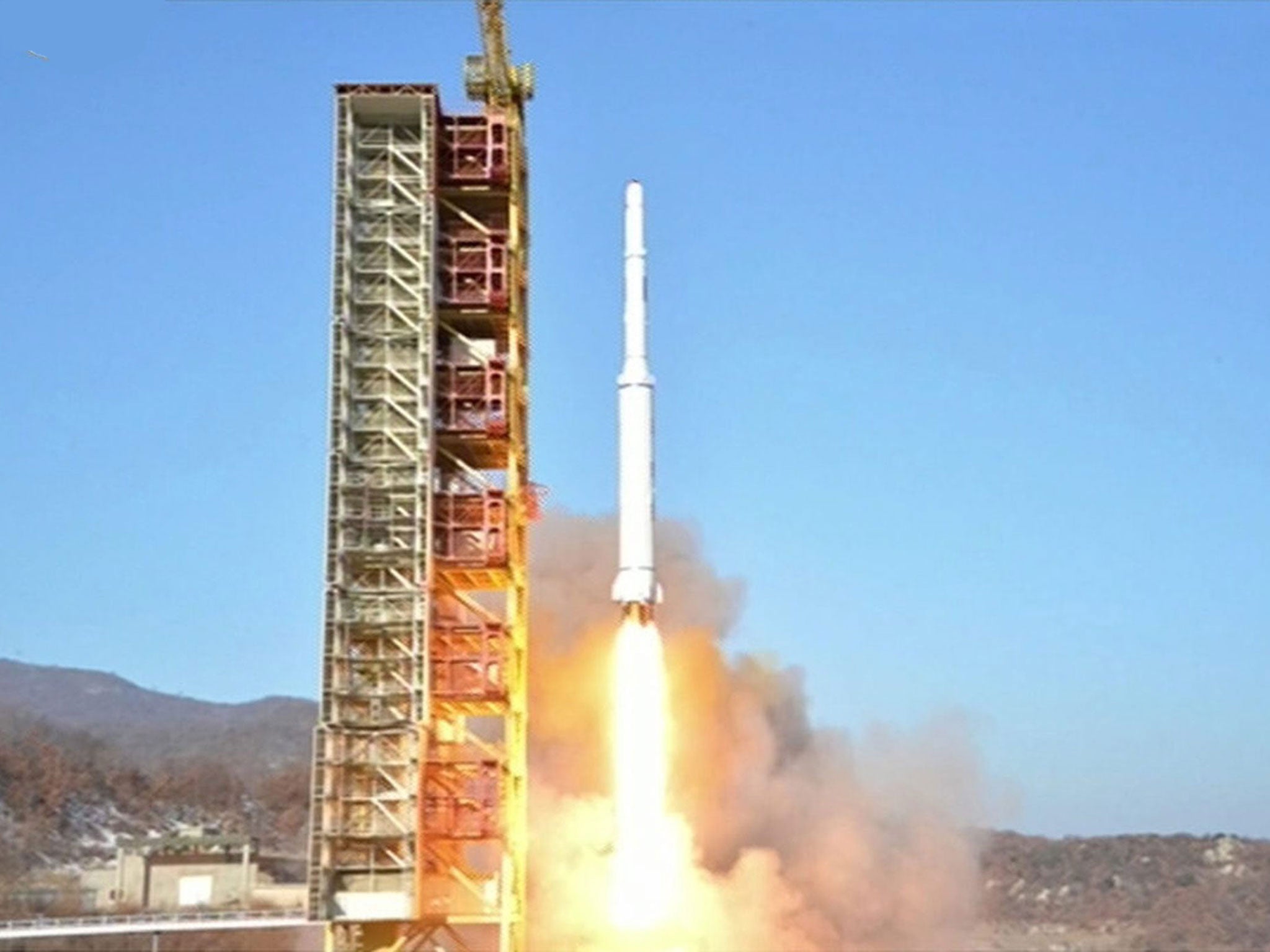Why does China continue to protect North Korea? It has a lot less to do with communism than you’d think
At a time when China is attempting to expand its influence and establish itself as the East Asian region’s dominant power, a united Korea would not be a welcome development

For anyone who takes a passing interest in the security policy of the Democratic People’s Republic of Korea its most recent missile launch comes as no great surprise.
The Kim dynasty has run North Korea since its inception more than half a century ago. They have the distinction of having created and hand refined the world’s last Stalinist regime. So much is well known, perhaps. What is more surprising, though, is that anyone would want to support them given this appalling record and the danger North Korea poses to its immediate neighbours.
And yet North Korea has one very powerful and influential friend. One reason that China and North Korea are so close is because of their shared revolutionary history and their joint struggle against the Americans during the Korean War. Perhaps 250,000 North Koreans and 100,000 Chinese were killed in this conflict, something that created strong bonds between the two communist powers.
But while North Korea remains a fossilized reminder of a bygone era, China has been completely transformed. Whatever China is these days its plainly not a communist state, much less a revolutionary one of the sort it was during the Cold War. The question is why, when North Korea has become such an unpredictable actor and seemingly impervious even to Chinese influence, does China continue to give it support, even if it is increasingly grudging?
One reason is that any sudden collapse of the North Korea would in itself have destabilizing and unpredictable consequences. It might trigger a flood of unwanted refugees into China. Even more importantly, perhaps, it could fundamentally transform the existing balance of power in northeast Asia.
If the two Koreas were unified, as we assume they would be, this would create a formidable new power in the region. More importantly from a Chinese perspective perhaps, the North Korean buffer zone would disappear and China would find itself with – yet another – potentially hostile power on its borders. Even more significantly, unless the US withdrew its forces from the South, China would also have to contend with an American military presence in its own back yard.
At a time when China is attempting to expand its influence and establish itself as the East Asian region’s dominant power this would not be a welcome development. On the contrary, it would be an uncomfortable reminder of just how extensive and discomfiting America’s strategic presence in ‘China’s region’ remains. Much of China’s foreign policy is dedicated to re-establishing what its people see as its rightful place at the center of regional affairs. The disappearance of the North Korea might not advance this project and illustrate the US’s continuing ability to contain China’s ambitions.
What is to be done? One possible solution is a grand bargain between China and the US: the US agrees to withdraw all its forces from the Korean peninsula if and when the Chinese help to engineer regime change in the North. It won't be easy and may involve the use of force, or at least intensified sanctions and isolation. But surely the US and China actually have more interests in common with each other than they do with the increasingly erratic North Korea. A reconfigured working relationship between the US and China could actually be the biggest payoff of all.
Join our commenting forum
Join thought-provoking conversations, follow other Independent readers and see their replies
Comments
Bookmark popover
Removed from bookmarks